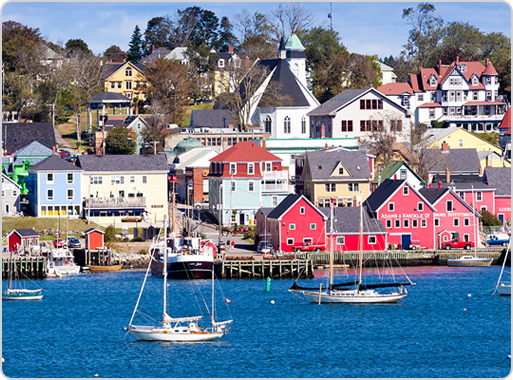N49° Eyewear - Lunenburg
57-20-148
LUNENBURG is a port town on the South Shore of Nova Scotia, Canada. Founded in 1753, the town was one of the first British attempts to settle Protestants in Nova Scotia.
The economy was traditionally based on the offshore fishery and today Lunenburg is the site of Canada's largest secondary fish-processing plant. The town flourished in the late 1800s, and much of the historic architecture dates from that period.
In 1995 UNESCO designated it a World Heritage Site. UNESCO considers the site the best example of planned British colonial settlement in North America, as it retains its original layout and appearance of the 1800s, including local wooden vernacular architecture. UNESCO considers the town in need of protection because the future of its traditional economic underpinnings, the Atlantic fishery, is now very uncertain.
The historic core of the town is also a National Historic Site of Canada.
The economy was traditionally based on the offshore fishery and today Lunenburg is the site of Canada's largest secondary fish-processing plant. The town flourished in the late 1800s, and much of the historic architecture dates from that period.
In 1995 UNESCO designated it a World Heritage Site. UNESCO considers the site the best example of planned British colonial settlement in North America, as it retains its original layout and appearance of the 1800s, including local wooden vernacular architecture. UNESCO considers the town in need of protection because the future of its traditional economic underpinnings, the Atlantic fishery, is now very uncertain.
The historic core of the town is also a National Historic Site of Canada.







